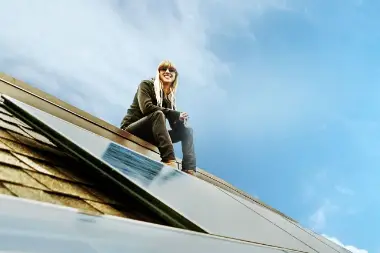Rising consumer prices – "private low-income households are particularly affected"
The energy market has been in turmoil since last year, with prices reaching levels that even long-serving experts have seldom experienced – if at all. The Russian invasion of Ukraine has now further exacerbated the situation. Wilfried Guemthe, analyst and Energy Trading team leader at Primeo Energie, talks about the situation and the outlook.
Mr Guemthe, let's first go back to the past few months: how did energy prices develop in the final quarter of 2021 and the first three months of this year?
The upward trend in energy prices, which we already observed over the summer months of 2021, continued during the previous two quarters. The energy markets reached all-time highs that almost nobody would have expected.
What were the reasons for this?
This was primarily due to fears of supply before the winter, with rapidly depleting gas reserves in Europe. In addition, there was a massive increase in demand for gas and coal in Asia. This has led to a dizzying rally in the gas market, and as a result, in the electricity market. Europe's already tense situation in gas supplies was then overshadowed by Russia's mounting aggression in Ukraine. And finally, there was more nervousness because the German Energy Authority had suspended the certification of Nord Stream 2 and a number of French nuclear power plants were off the grid for maintenance reasons. This all took place in the last quarter of 2021. In Q1 of this year, Russia's war of aggression against Ukraine took place and massively intensified the situation, not only across Europe, but also globally.
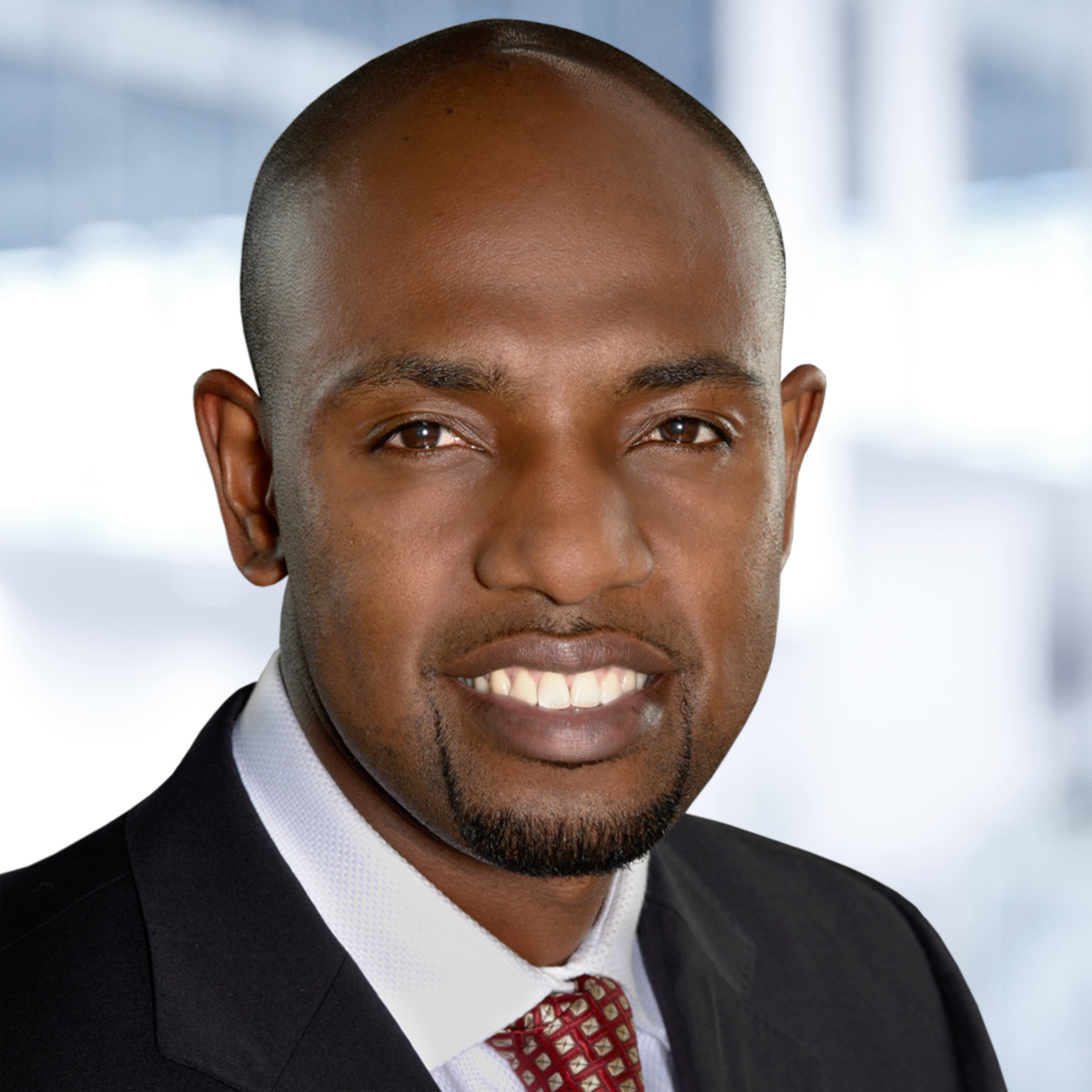
What consequences have these developments had for consumers so far?
Russia's war with Ukraine has led to increased instability and consequently to sharp price movements and spikes in the energy markets. Many energy suppliers have had to suddenly raise more money to cover the collateral associated with energy trading. Several nations and governments have launched rescue packages to protect system-critical power companies and authorities from an uncontrolled breakdown. The risk of liquidity shortages and knock-on effects was simply too great. In the industrial sector, material and supply bottlenecks are driving up producer prices. Disrupted supply chains, delayed delivery, and waiting times of up to three months have become common. And rising producer prices also mean that consumer goods are becoming more expensive across the board. End consumers notice this almost daily – at the petrol pump, in the supermarket, and in restaurants. Private low-income households are particularly affected. Wealthier people, on the other hand, usually have some savings with which to maintain the standard they are accustomed to, at least for a while.
What role does the war in Ukraine play?
Concerns about Europe's energy supply started not only with Russia's war of aggression – the war simply exacerbated the situation. The war itself, however, not only threatens Europe's energy supply, but also the world's food supply. It has led to a enormous increase in food prices, as many countries depend almost entirely on grain deliveries from Russia and Ukraine. According to the UN World Food Programme, 150 million more people were threatened by starvation in the January before the pandemic and the effects of climate change than two years earlier.
In your opinion, what are the greatest challenges in the near future?
I see various challenges coming from overseas: Economic worries in the U.S., for example, but also in China due to months-long, strict lockdowns that paralyse the world's largest port in Shanghai and thus further exacerbate known supply chain problem. But natural disasters such as the extreme heat waves in India are also currently having a major effect on the economic recovery after two years of the pandemic. In addition, I fear that the war will unfortunately continue for a long time, as will the high prices for energy and food.
The West is trying to counteract this with sanctions and by phasing out the import of Russian raw materials. Does this help?
The harshest sanctions ever imposed by the West against the Moscow government have so far had little effect on Putin, but they have hit the Russian economy hard. At the same time, however, the West's decision to stop buying Russian raw materials also has its price. Fuel, gas and food prices have increased noticeably and are putting a huge burden on consumers. According to Eurostat, the inflation rate in the eurozone as a whole was 7.5% in April 2022, and in some EU countries it was even in the double-digit range (Greece 10.2%, Czech Republic 14%). From today's perspective, there are no signs of price increases tapering off, especially as the sanctions are being tightened still further.
Viktor Sammain, PR Editor, Primeo Energie
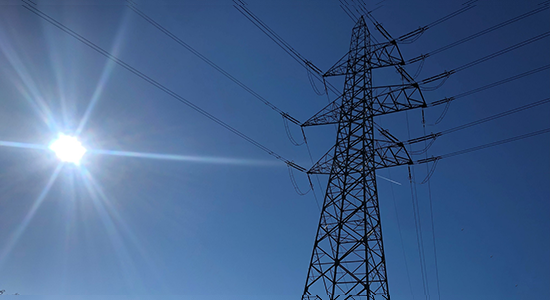
"The risk is higher, but I can still sleep well."
Dr Lukas Küng is managing director of Primeo Netz AG and also head of the Organisation for Power Supply in Extraordinary Situations, in short: OSTRAL. We spoke with him about the reliability of supply in Switzerland, the risk of a power shortage, and how each and every individual can prepare for it.
Mr Küng, everyone is wondering how reliable supply is. Is this justified or is it a "spectre of fear," as some say?
Basically, there's no need to panic. We are very well prepared, and I can still sleep well. But the likelihood of a lengthy electricity shortage has recently increased somewhat.
How do we know that this is the case?
Signs of this are, for example, rising energy prices, which we have been seeing since last year. However, the war in Ukraine is also currently playing a role, together with climate change, which means, for example, that rivers have too little water or it becomes too hot to run power stations. But again, the probability of a power shortage is inherently small. However, the question is whether it is very small or just small. That's why it's definitely a good idea to be prepared.
How can people prepare?
The measures for private individuals and companies are very similar. We should all think about where we use a lot of electricity in our home or business and what we can do without in an emergency. Of course, it's also a good idea to invest in a photovoltaic system – or even better, in building insulation, for example. This also helps to save electricity or to become more independent in case of a power shortage. By the way, the Federal Office for National Economic Supply has put together an electricity guide with tips that's available online.
"Switzerland is well prepared. At OSTRAL, we have put measures in place that will enable us to respond very effectively to an electricity shortage.
What are these measures?
We have a four-level approach. If there is an electricity shortage, the Federal Council will first of all ask everyone to save. Citizens and businesses will be called upon to refrain from consuming unnecessary amounts of energy. The next level involves restrictions. The use of saunas or ski lifts, for example, will be prohibited. The next level involves rationing, which only applies to companies. Here, we stipulate that only a certain amount of electricity is available, and companies then have to get by on that amount. And the fourth level involves grid disconnection, which will affect everyone. Here, grid operators will switch off certain districts for rotating periods according to defined plans. Some will have electricity, others will be in the dark.
Can you tell us more about these plans?
The operators responsible for disconnecting the grids have these plans in their control centres. There, every switch is defined, together with details of how much energy is saved when it is turned off. The plans are also coordinated with the crisis management teams of communes and cantons. The criterion for switching off is simply to ensure that everyone is affected more or less equally, that the electricity is in fact off, and that the technical aspects of switching actually work.
How do you see the near future at OSTRAL, taking into account the war in Ukraine? Do you perhaps know more than the general public?
Well, we don't have any secret information. But there are people in the Federal Office for National Economic Supply who can assess the situation more accurately. I'm not one of them. The experts there, including the Federal Office for Civil Protection or the Swissgrid, are monitoring the situation and consulting each other. We at OSTRAL are then informed about what to do based on their decisions. We are the organisation carries out the orders.
Viktor Sammain, PR Editor, Primeo Energie
New maison-intelligente.ch tool launched in French-speaking Switzerland
Homeowners in Western Switzerland can now use the maison-intelligente.ch tool to determine the potential of photovoltaic systems, heat pumps, and electric charging stations easily and accurately. Primeo Energie and Technic 360 SA are using this tool to pool their expertise and are launching a joint initiative in the Canton of Fribourg on the topic of decentralised renewable energy supply and financing.
Using energy efficiently and producing renewable energy are crucial requirements for implementing the Federal Council's 2050 Energy Strategy and for protecting the climate. Photovoltaics and heat pumps are very powerful, easy to install, and have great potential.
Both systems can be ideally combined. In addition, both applications are becoming increasingly cost-effective. Primeo Energie and Technic 360 SA jointly launched the maison-intelligente.ch service so that owners of single-family homes and apartment buildings can benefit from decentralised renewables and self-finance them.
The maison-intelligente.ch service is the first online platform in French-speaking Switzerland that allows interested parties to independently calculate the potential and advantages of photovoltaics and heat pumps and get detailed advice and financing solutions. The Fribourg Cantonal Bank works with maison-intelligente.ch and grants preferential terms for solutions that are implemented with it.
Suitable offers are sent to all those interested, together with quotations and recommendations. In the first phase, the online platform includes photovoltaics, heat pumps, and electromobility. The experts at Technic 360 SA provide free advice on how to build photovoltaic systems and heat pumps.
Joachim Krebs, Head of Corporate Communications, Primeo Energie
Heating network Birsstadt – an extraordinary project
It was an extraordinary project: 25 existing heating systems and networks were merged to form the "Birsstadt heating network." They were converted to use renewable energies. The new network's centre is at the uptownBasel site in Arlesheim.
The "Birsstadt heating network" was launched in May 2022. Following an environmental impact assessment and general clarifications, the building authorities gave the go-ahead for the new energy centre, which is being built on the site of uptownBasel, the international competence centre for Industry 4.0 in Arlesheim. Construction of the plant started in summer 2022. It is expected that the first customers will be supplied with heating by the end of 2023.
From the uptownBasel site, the Energy Centre will supply renewable thermal energy to 25 existing district heating networks and systems in the communes of Arlesheim, Münchenstein, Reinach, to the entire uptownBasel site, and to the Primeo Energie site in Münchenstein. The construction and supply concept with the expansion of the pipeline network for additional communes and customers will be implemented in stages. Primeo Energie has planned a three-tier tariff model for the new heating network, the costs of which are based on the proportion of renewable energies purchased. Altogether, Primeo Energie is investing CHF 50 million in this large regional project.
Renewable energies and climate protection
The energy centre has two biomass boilers for waste wood. Thanks to state-of-the-art technologies and filter systems, the lowest possible emission values can be attained. In the summer, heat pumps will be used with the waste heat from a new data centre on the site. The old, conventionally-operated heating stations that are no longer required in the supply network will be decommissioned. With a share of around 80% from renewables, the environment and climate will be protected and considerable amounts of CO2 emissions saved.
Joachim Krebs, Head of Corporate Communications, Primeo Energie
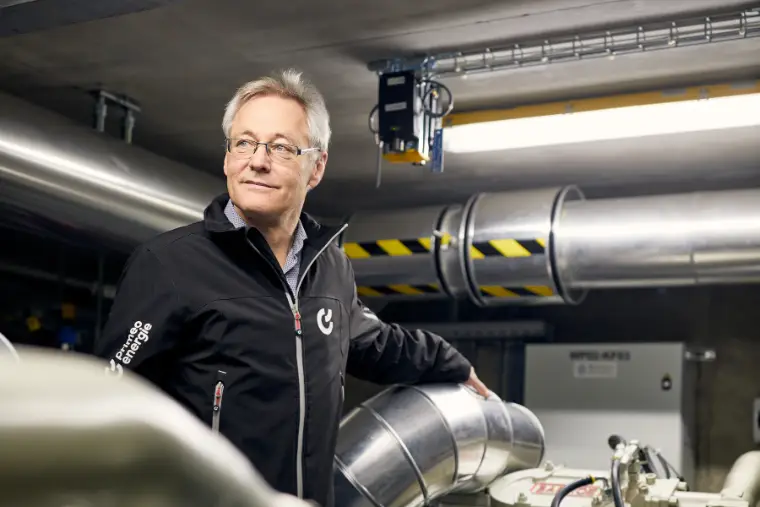
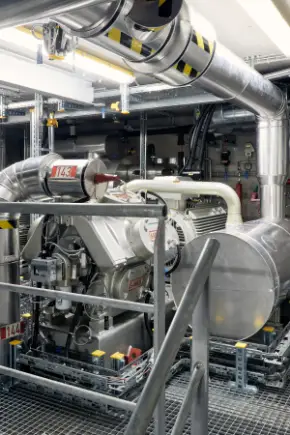
Primeo Energie Kosmos: Climate-friendly new building completed
Work on Primeo Energie Kosmos, the new visitor centre, has reached an important milestone: The new building, which soon will house the Science Centre, has been completed. The building uses many reused components and thus sets new standards in climate-friendly construction in Switzerland.
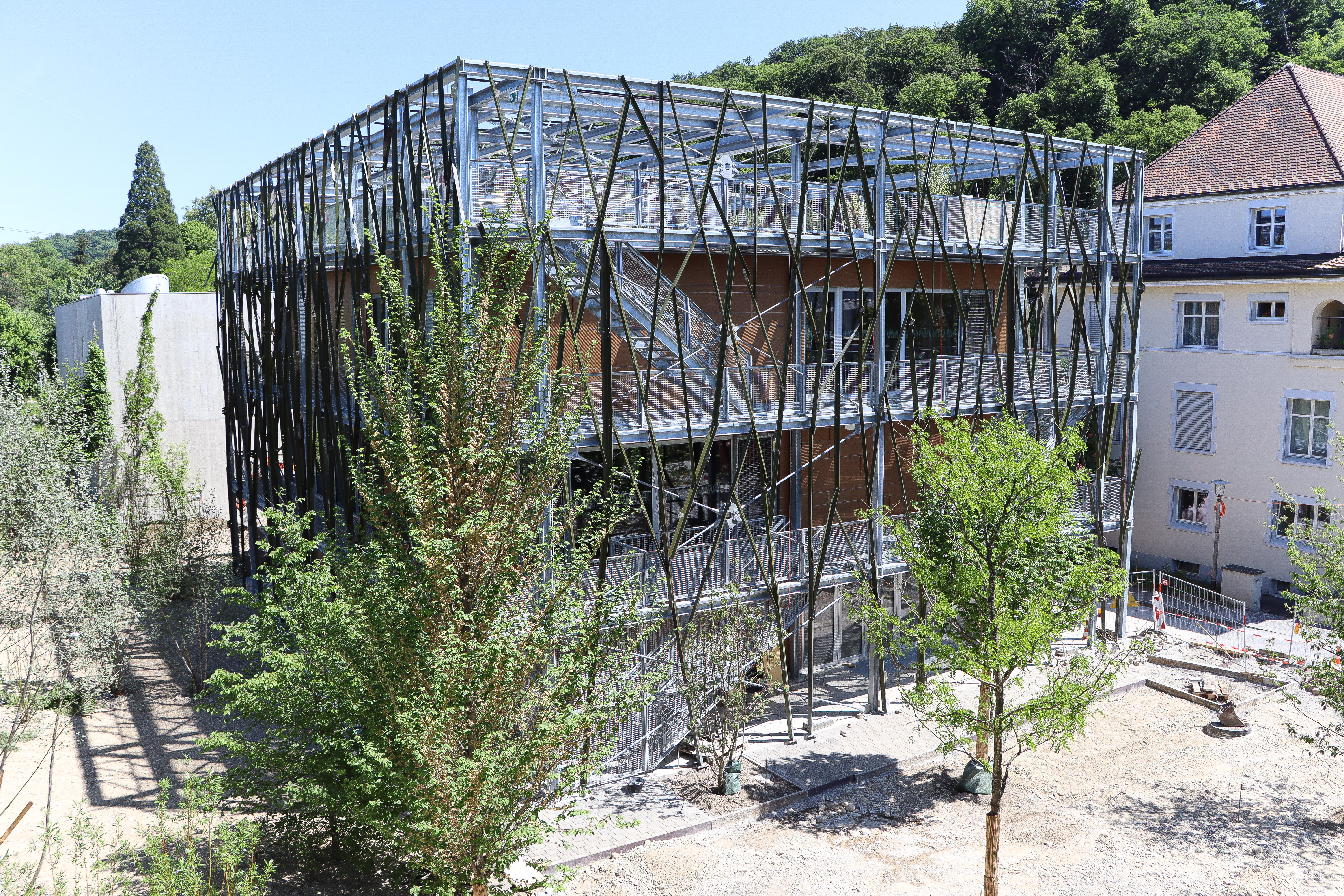
The most striking example is the distinctive lattice façade, which consists of parts of old electricity pylons from Swissgrid, the national grid operator. The lattice sections of the façade have a total weight of 20 tons of reused steel and would extend over a length of 1.7 kilometres when placed in a row. Furthermore, the façade panels, kitchenette, lamps, bathroom fittings, wooden floor in the Science Centre, and other components were either used previously or are new remaining or surplus stock.
Designed by Rapp Architects from Basel, the building has around 220 cubic metres of wood, the largest part of the construction material. Regional wood was explicitly used for the load-bearing parts, which were put in place by Stamm Bau AG in Arlesheim. This means using 107 tons of wood, 150 tons of steel, 325 tons of concrete, and around 10 tons of glass.
The construction is being piloted throughout Switzerland and is part of a study on the circular economy financed by the Swiss Federal Office of Energy that examines the environmental benefits of reusing materials in buildings. Primeo Energie is applying the recycling concept throughout the entire construction of the Primeo Energie Kosmos,
which opened at the end of October and take the Energy Learning Centre into the future. The former Electricity Museum, which was also rebuilt to adapt a circular approach, is being converted into a multimedia experience centre. Next to it is the interactive Science Centre in a newly completed building. As a new MINT communication platform, Primeo Energie Kosmos will be one of north-western Switzerland's most important information offers on the topics of climate and energy.
Viktor Sammain, PR Editor, Primeo Energie
Primeo Energie is the new main sponsor of the Tour de Suisse
Primeo Energie will be the main sponsor of the Tour de Suisse starting in 2022. After three years as a Premium Partner, the main sponsorship takes cooperation with the organisers of the Swiss National Tour to a new level.
Primeo Energie has been participating in the Tour de Suisse since 2018 – at the second highest Premium Partnership level, with the special "Best Young Professional" ranking, until 2021.
"We wanted to become the main sponsor right from the start," says Dr Conrad Ammann, CEO of Primeo Energie. We now made it happen.
This commitment aims to raise Primeo Energie's profile throughout Switzerland. "The background is our growth strategy," says Ammann. "We want to be one of the five leading energy companies in Switzerland." That's why we were looking for a form of sponsorship that extends beyond the region, explains Ammann. "And which event would be better suited than the Tour de Suisse?"
Cycling is a good fit for Primeo Energie, says Ammann. "Cycling is a team sport where riders have to conserve their strength and that uses a lot of technology." Primeo Energie already supports numerous cycling events and clubs, such as the Bike Festival Basel and the VeloClub Dornach.
Primeo Energie has now pledged to become the main sponsor of the tour for three years, with the option to extend. "We are very happy and grateful to have found a new main sponsor in Primeo Energie for our men's and women's races, particularly in these trying times of the event industry," says Olivier Senn, Director of the Tour de Suisse.
As a result of the sponsorship, the Tour de Suisse is also visiting Primeo Energie's supply area. One stage of the tour is planned for Aesch. "Sponsorship gives us the chance to influence who leads a stage of the race," says Conrad Ammann. In 2019, one stage even began at the Primeo Energie site in Münchenstein. The 2022 Tour de Suisse started in Küsnacht on 12 June and ran until 21 June.
Viktor Sammain, PR Editor, Primeo Energie
